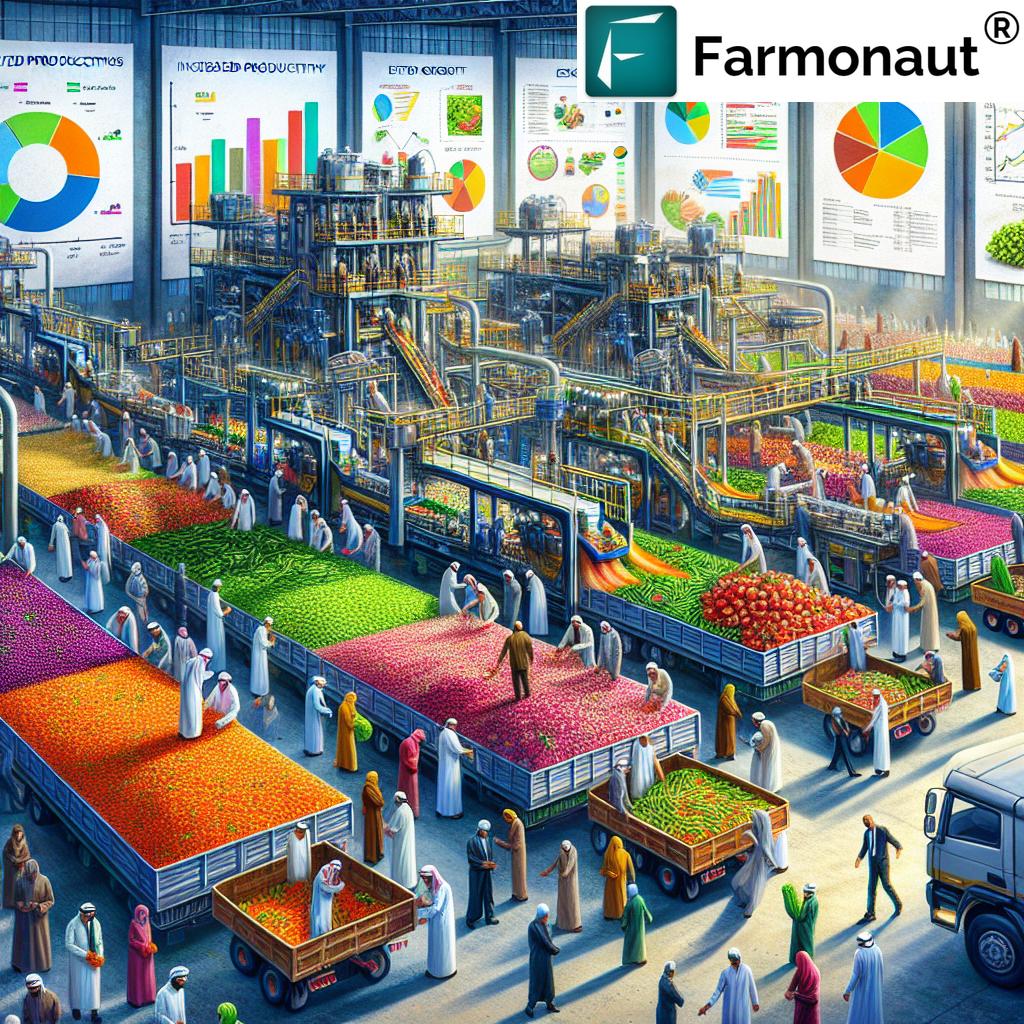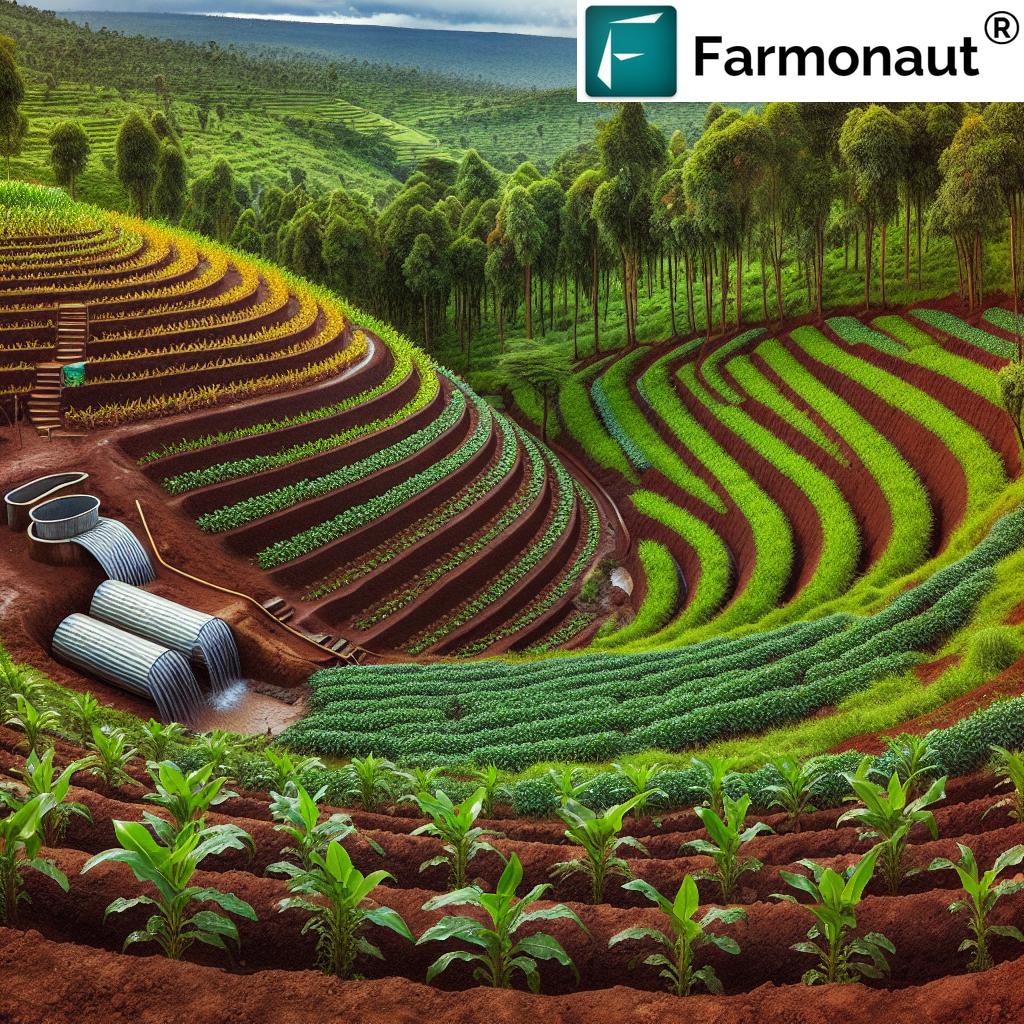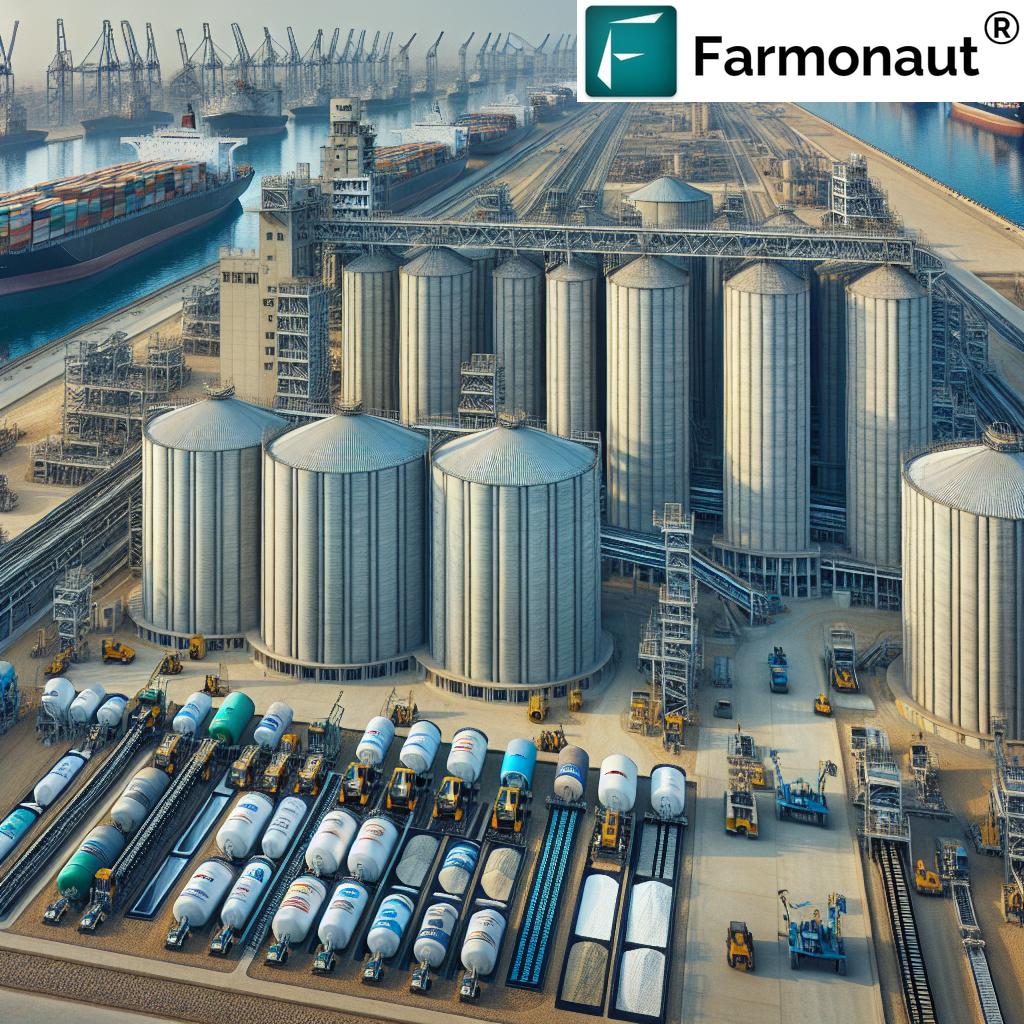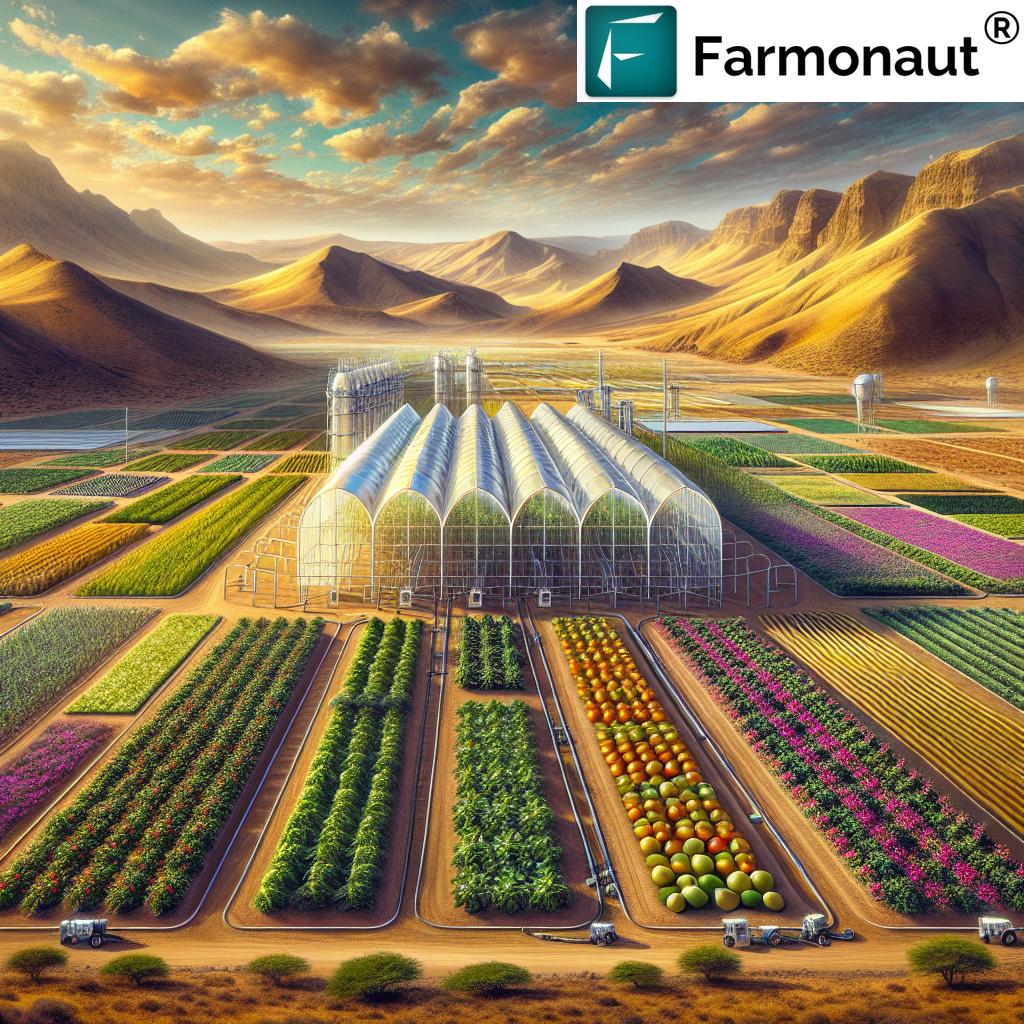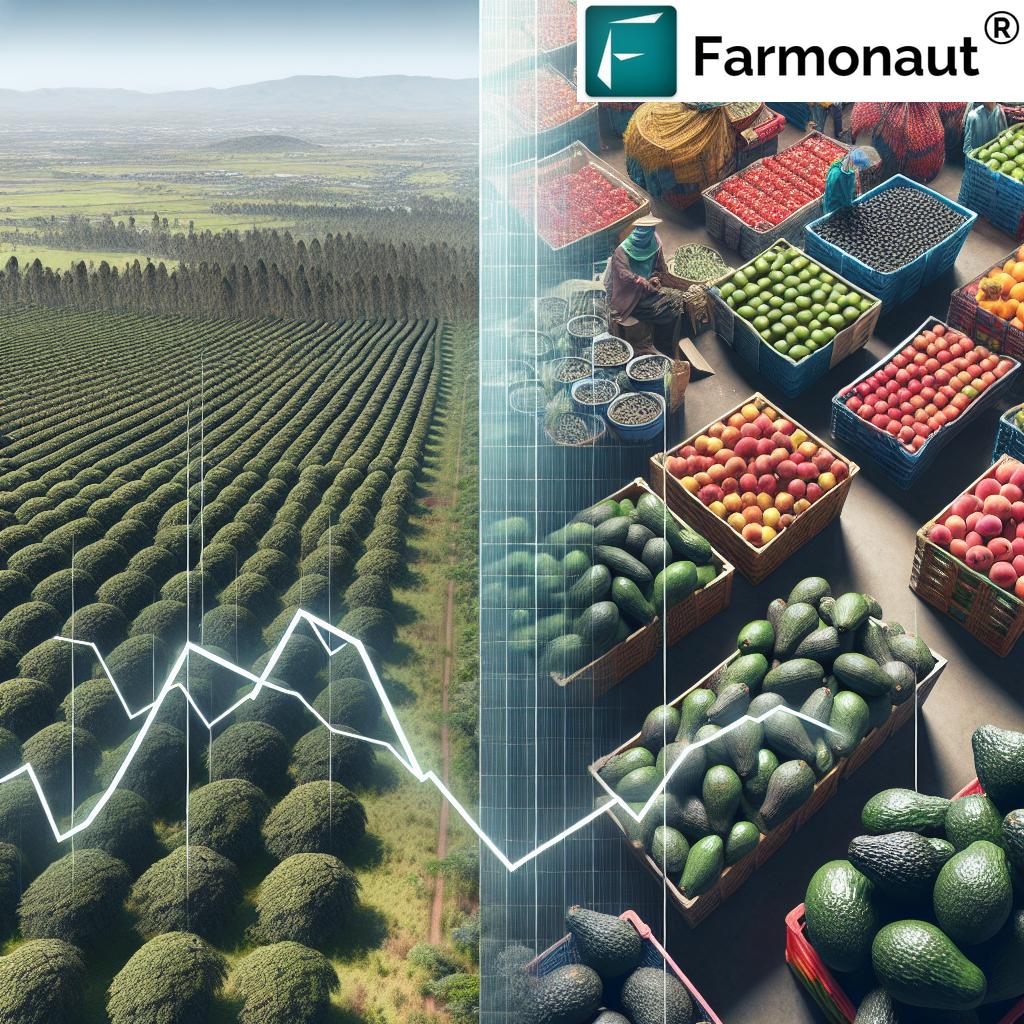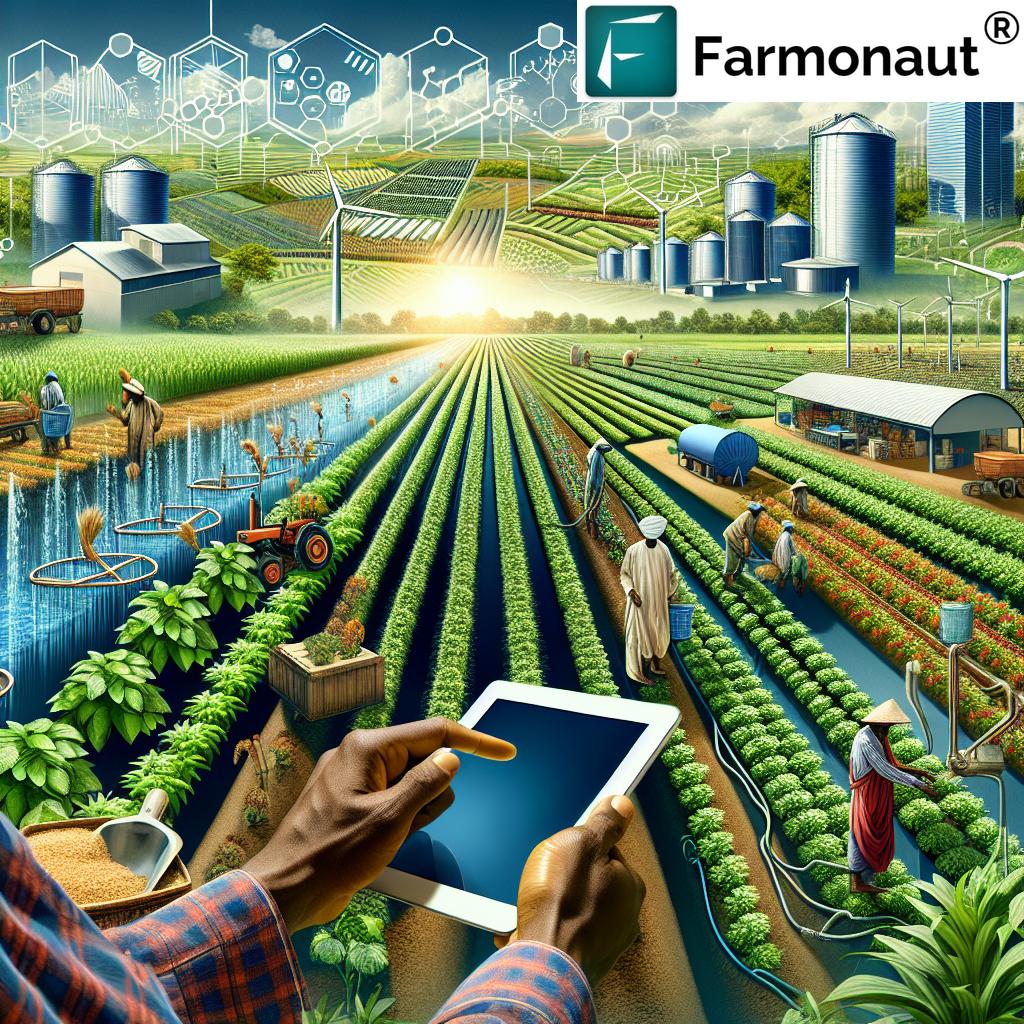Revolutionizing Sustainable Agriculture in Egypt: Boosting Productivity and Exports with Smart Farming Techniques
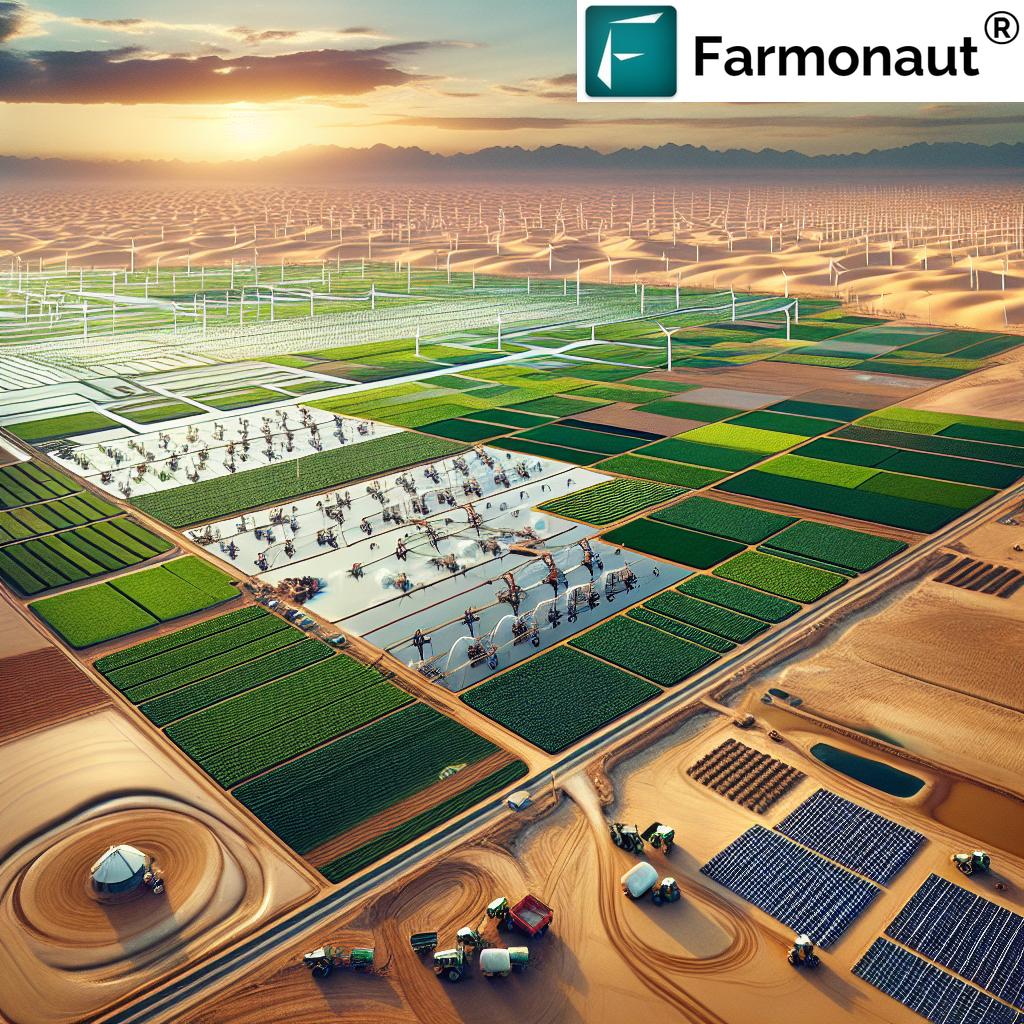
“Egypt’s West Minya project aims to transform 14,100 feddans of land for sustainable agriculture and crop cultivation.”
In the heart of the Middle East and North Africa (MENA) region, Egypt is taking bold strides towards revolutionizing its agricultural sector. We’re witnessing a remarkable transformation that promises to reshape the country’s economic landscape and position it as a leader in sustainable agriculture. This blog post delves into the exciting developments unfolding in Egypt’s agricultural scene, with a particular focus on the West Minya project and its potential to boost productivity and exports through smart farming techniques.
The Dawn of a New Agricultural Era in Egypt
Egypt’s journey towards sustainable agriculture is not just a local endeavor; it’s a significant leap forward for the entire MENA region. The country’s commitment to enhancing agricultural productivity and sustainability is evident in its recent initiatives, particularly the ambitious development project in West Minya. This venture is set to transform 14,100 feddans of land, focusing on innovative crop cultivation techniques and agricultural land reclamation.
As we explore this transformative project, it’s crucial to understand its alignment with Egypt Vision 2030, a comprehensive plan that aims to propel the nation towards sustainable development across various sectors. In the realm of agriculture, this vision encompasses several key objectives:
- Boosting food processing industries
- Reducing import dependency
- Increasing export opportunities for Egyptian crops
- Enhancing agricultural infrastructure
- Attracting agribusiness investment
These goals are not just ambitious targets; they represent a holistic approach to revolutionizing Egypt’s agricultural sector, with far-reaching implications for food security, economic growth, and environmental sustainability.
The West Minya Project: A Catalyst for Change
At the heart of Egypt’s agricultural transformation lies the West Minya project. This initiative is not just about expanding cultivated land; it’s about reimagining agriculture in the region. Let’s delve into the key aspects of this groundbreaking project:
Land Reclamation and Cultivation
The project focuses on reclaiming 14,100 feddans of land in the West Minya extension area. This is no small feat, considering the challenges posed by desert landscapes. The reclamation process involves:
- Soil conditioning and improvement
- Implementation of advanced irrigation systems
- Introduction of climate-resilient crop varieties
By transforming previously unproductive land into fertile agricultural plots, Egypt is not just expanding its arable land; it’s creating new opportunities for farmers and agribusinesses alike.
Innovative Crop Cultivation Techniques
The West Minya project is not just about expanding farmland; it’s about revolutionizing how crops are grown. The initiative introduces cutting-edge cultivation techniques that promise to boost productivity while ensuring sustainability. These include:
- Precision agriculture using satellite technology
- Smart irrigation systems for water conservation
- Integrated pest management to reduce chemical usage
- Crop rotation and diversification for soil health
To understand how these techniques are transforming agriculture, let’s take a closer look at how satellite technology is being leveraged in this sector.
As shown in the video, satellite technology plays a crucial role in modern agriculture. Companies like Farmonaut are at the forefront of this revolution, offering farmers advanced tools for crop monitoring and management. By integrating such technologies, the West Minya project is setting new standards for agricultural efficiency and sustainability.
Enhancing Agricultural Infrastructure
The success of any agricultural project hinges on robust infrastructure. The West Minya initiative recognizes this and places significant emphasis on developing:
- Modern storage facilities to reduce post-harvest losses
- Efficient transportation networks for timely market access
- Processing units to add value to raw agricultural products
- Research and development centers for continuous innovation
These infrastructure investments are not just about supporting current agricultural activities; they’re about building a foundation for long-term growth and sustainability in the sector.
Aligning with Egypt Vision 2030: A Broader Perspective
“Egypt’s agricultural initiative aligns with Vision 2030, focusing on reducing imports and increasing crop exports.”
The West Minya project is not an isolated endeavor; it’s a crucial component of Egypt’s broader Vision 2030 strategy. This comprehensive plan aims to transform Egypt into a sustainable, developed country by 2030. In the context of agriculture, Vision 2030 sets forth several ambitious goals:
- Achieving food security through increased domestic production
- Enhancing the competitiveness of Egyptian agricultural products in global markets
- Promoting sustainable use of natural resources, particularly water
- Improving the livelihoods of rural communities
The West Minya project contributes significantly to these objectives by:
- Increasing agricultural productivity through modern techniques
- Diversifying crop production to meet both domestic and export demands
- Implementing water-efficient irrigation systems
- Creating job opportunities in rural areas
To better understand how these initiatives are impacting Egypt’s agricultural landscape, let’s examine a comprehensive table:
| Initiative | Area Covered | Key Focus | Expected Benefits |
|---|---|---|---|
| West Minya Development Project | 14,100 feddans | Crop cultivation techniques, land reclamation | Increased productivity, job creation, export opportunities |
| Agricultural Infrastructure Projects | Nationwide | Storage facilities, transportation networks | Reduced post-harvest losses, improved market access |
| Agribusiness Investment | Various regions | Food processing, value addition | Increased export value, economic diversification |
Boosting Agricultural Productivity: The Role of Smart Farming
At the core of Egypt’s agricultural revolution is the adoption of smart farming techniques. These innovative approaches are transforming traditional farming practices, leading to significant improvements in productivity and sustainability. Let’s explore some of the key smart farming techniques being implemented:
Precision Agriculture
Precision agriculture is revolutionizing farming by allowing for targeted, data-driven decision-making. In Egypt, this approach is being adopted through:
- Satellite-based crop monitoring
- GPS-guided machinery for precise planting and harvesting
- Variable rate technology for optimized input application
These technologies enable farmers to manage their fields with unprecedented accuracy, leading to improved yields and reduced resource waste.
The video above demonstrates how advanced agricultural solutions, such as those offered by Farmonaut, are being applied in Egypt for precise crop area estimation. This technology is crucial for effective agricultural planning and management.
Smart Irrigation Systems
In a country where water scarcity is a pressing issue, smart irrigation systems are playing a pivotal role in sustainable agriculture. These systems include:
- Drip irrigation for water-efficient crop watering
- Soil moisture sensors for optimal irrigation scheduling
- Weather-based irrigation controllers
By implementing these technologies, Egypt is not only conserving water but also improving crop yields through more efficient water usage.
Integrated Pest Management (IPM)
Sustainable agriculture in Egypt is also focusing on reducing chemical inputs through Integrated Pest Management. This approach involves:
- Biological pest control methods
- Crop rotation to break pest cycles
- Use of pest-resistant crop varieties
IPM not only reduces the environmental impact of farming but also helps in producing safer, chemical-free crops that are increasingly in demand in international markets.
Enhancing Export Opportunities for Egyptian Crops
One of the key objectives of Egypt’s agricultural transformation is to boost its position in the global agricultural market. The West Minya project and associated initiatives are set to enhance export opportunities for Egyptian crops in several ways:
Diversification of Crop Portfolio
Egypt is focusing on diversifying its crop portfolio to meet international demand. This includes:
- Cultivation of high-value crops like medicinal herbs and organic produce
- Introduction of new crop varieties suited for export markets
- Expansion of fruit and vegetable production for year-round supply
Quality Enhancement and Certification
To compete in global markets, Egypt is placing a strong emphasis on quality enhancement and certification. This involves:
- Implementation of Good Agricultural Practices (GAP)
- Obtaining international certifications like GlobalG.A.P.
- Establishing traceability systems for export crops
Value Addition through Processing
The initiative also focuses on adding value to raw agricultural products through processing. This includes:
- Setting up food processing units near production areas
- Developing packaged and ready-to-eat products for export
- Creating brand identities for Egyptian agricultural products
These efforts are aimed at not just increasing the volume of exports but also enhancing the value of Egyptian agricultural products in international markets.
The Role of Technology in Sustainable Agriculture
Technology plays a pivotal role in driving sustainable agriculture in Egypt. From satellite-based monitoring to AI-powered decision support systems, various technological solutions are being integrated into the agricultural landscape. Let’s explore some of these technological advancements:
Satellite-Based Crop Monitoring
Satellite technology is revolutionizing how farmers monitor and manage their crops. Companies like Farmonaut are at the forefront of this revolution, offering advanced solutions for precision agriculture. These technologies provide:
- Real-time crop health monitoring
- Early detection of crop stress and diseases
- Accurate yield predictions
By leveraging these technologies, Egyptian farmers can make data-driven decisions, optimizing their resource use and improving overall productivity.
Artificial Intelligence in Agriculture
AI is increasingly being used in Egyptian agriculture for various applications, including:
- Predictive analytics for crop planning
- Automated irrigation systems
- Pest and disease identification
These AI-powered solutions are helping farmers make more informed decisions, leading to improved yields and reduced environmental impact.
Blockchain for Agricultural Supply Chains
Blockchain technology is being explored to enhance transparency and traceability in agricultural supply chains. This can lead to:
- Improved food safety
- Enhanced consumer trust
- More efficient supply chain management
By implementing blockchain solutions, Egypt can strengthen its position in international markets, especially for high-value export crops.
Sustainable Agriculture and Environmental Conservation
While focusing on productivity and exports, Egypt’s agricultural initiatives also place a strong emphasis on environmental conservation. This holistic approach ensures long-term sustainability of the sector. Key aspects include:
Water Conservation
Given Egypt’s arid climate, water conservation is crucial. The West Minya project and other initiatives are implementing:
- Efficient irrigation systems like drip and sprinkler irrigation
- Water recycling and reuse techniques
- Cultivation of drought-resistant crop varieties
Soil Health Management
Maintaining soil health is essential for sustainable agriculture. Egypt is focusing on:
- Organic farming practices
- Crop rotation to maintain soil fertility
- Use of cover crops to prevent soil erosion
Biodiversity Conservation
Preserving biodiversity is an integral part of sustainable agriculture. Initiatives include:
- Creation of wildlife corridors in agricultural areas
- Promotion of agroforestry practices
- Conservation of native plant species
The video above showcases how organizations like Farmonaut are collaborating to promote sustainable agricultural practices in Africa, including Egypt. These efforts are crucial for balancing productivity with environmental conservation.
Economic Impact and Job Creation
The transformation of Egypt’s agricultural sector is not just about food production; it’s also a significant driver of economic growth and job creation. The West Minya project and associated initiatives are expected to have a substantial impact on the country’s economy:
Direct Job Creation
The agricultural sector is set to create numerous job opportunities, including:
- Skilled agricultural workers
- Technicians for operating advanced farming equipment
- Agronomists and agricultural scientists
Indirect Employment
The ripple effect of agricultural growth will lead to job creation in related sectors such as:
- Food processing and packaging industries
- Agricultural logistics and transportation
- Agricultural technology and service providers
Rural Development
The focus on agriculture is expected to stimulate rural development through:
- Improved infrastructure in rural areas
- Increased economic activity in agricultural regions
- Enhanced access to education and healthcare in rural communities
These economic benefits are crucial for achieving the broader goals of Egypt Vision 2030, which aims for inclusive and sustainable economic growth.
Challenges and Future Outlook
While the prospects for sustainable agriculture in Egypt are promising, there are challenges that need to be addressed for long-term success:
Water Scarcity
Egypt faces significant water scarcity issues. Addressing this challenge requires:
- Continued investment in water-efficient irrigation technologies
- Exploration of alternative water sources, including water recycling
- International cooperation on Nile water management
Climate Change Adaptation
Climate change poses a significant threat to agriculture. Egypt needs to focus on:
- Developing climate-resilient crop varieties
- Implementing adaptive farming practices
- Enhancing early warning systems for extreme weather events
Technology Adoption
While technology is key to agricultural transformation, its adoption faces challenges such as:
- High initial costs of advanced farming technologies
- Need for farmer education and training
- Ensuring technology accessibility for small-scale farmers
Despite these challenges, the future outlook for sustainable agriculture in Egypt remains positive. With continued investment, innovation, and commitment to sustainability, Egypt is well-positioned to become a leader in sustainable agriculture in the MENA region.
The video above demonstrates how satellite data is being used to improve farming practices, a key aspect of Egypt’s agricultural transformation. Technologies like these are essential for addressing the challenges and capitalizing on the opportunities in the sector.
Conclusion: A New Era for Egyptian Agriculture
As we’ve explored throughout this blog post, Egypt is on the cusp of a revolutionary transformation in its agricultural sector. The West Minya project, aligned with Egypt Vision 2030, is set to redefine sustainable agriculture in the country and the broader MENA region. By focusing on innovative crop cultivation techniques, smart farming technologies, and sustainable practices, Egypt is not just addressing its food security needs but also positioning itself as a significant player in the global agricultural market.
The integration of advanced technologies, such as those offered by companies like Farmonaut, is playing a crucial role in this transformation. From satellite-based crop monitoring to AI-driven decision support systems, these technologies are empowering farmers to make data-driven decisions, optimize resource use, and increase productivity while minimizing environmental impact.
As Egypt continues on this path of agricultural innovation and sustainability, it sets an example for other countries in the region and beyond. The success of these initiatives will not only boost Egypt’s economy and food security but also contribute significantly to global efforts in sustainable agriculture and environmental conservation.
The future of agriculture in Egypt is bright, promising increased productivity, enhanced export opportunities, and a more sustainable approach to farming. As these initiatives unfold, they will undoubtedly shape the landscape of Egyptian agriculture for generations to come, contributing to a more prosperous and sustainable future for the country and its people.
FAQ Section
Q1: What is the West Minya project in Egypt?
A1: The West Minya project is a major agricultural development initiative in Egypt aimed at transforming 14,100 feddans of land. It focuses on implementing innovative crop cultivation techniques and agricultural land reclamation to boost productivity and sustainability.
Q2: How does the West Minya project align with Egypt Vision 2030?
A2: The project aligns with Egypt Vision 2030 by contributing to goals such as boosting food processing industries, reducing import dependency, increasing export opportunities for Egyptian crops, and attracting agribusiness investment.
Q3: What are some smart farming techniques being implemented in Egypt?
A3: Smart farming techniques in Egypt include precision agriculture using satellite technology, smart irrigation systems for water conservation, and integrated pest management to reduce chemical usage.
Q4: How is technology contributing to sustainable agriculture in Egypt?
A4: Technology is playing a crucial role through satellite-based crop monitoring, AI-powered decision support systems, and blockchain for supply chain management, all of which help in optimizing resource use and improving productivity.
Q5: What are the main challenges facing sustainable agriculture in Egypt?
A5: The main challenges include water scarcity, adapting to climate change, and ensuring widespread adoption of advanced farming technologies, especially among small-scale farmers.
Earn With Farmonaut: Affiliate Program
Earn 20% recurring commission with Farmonaut’s affiliate program by sharing your promo code and helping farmers save 10%. Onboard 10 Elite farmers monthly to earn a minimum of $148,000 annually—start now and grow your income!
